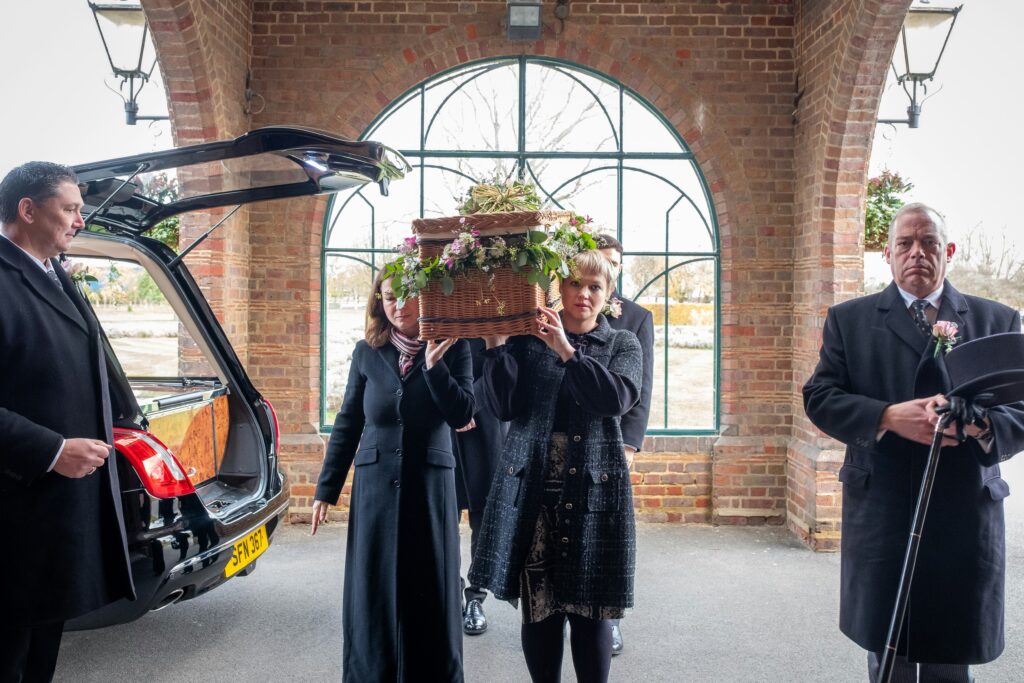10 Phrases to Avoid at a Funeral

We all know from experience that there are phrases to avoid at a funeral. Being those very sensitive occasions, funerals are those events where emotions run high, and choosing the right words can provide reassurance to grieving loved ones.
However, amidst the desire to offer condolences, it’s crucial to be mindful of the impact our words may have, as the wrong words can create disastrous results.
Here are ten phrases to avoid at a funeral and the reasons behind their exclusion, along with an alternative phrase to consider:
- “I know how you feel…”
While saying this might feel well-intentioned, it can come across as insensitive to the individual’s own painful experience, especially if you’ve never been in their exact position before. Instead, you should support them without assuming to understand their emotions or what they might be going through.
Alternative: “I can’t imagine how you’re feeling, but I’m here for you.”

- “Perhaps it’s for the best”
Statements implying that the loss is a blessing in disguise can invalidate the anguish associated with the grieving process. It’s essential to acknowledge the depth of their loss and offer solace without minimizing their feelings.
Alternative: “I’m here to support you through this difficult time.”
- “They’re in a better place now”
Even though it may sound harmless, “They are in a better place now”, is one of the phrases to avoid at a funeral as well. While meant to provide reassurance, this phrase may not resonate with everyone’s beliefs about the afterlife.
It’s best to offer condolences without making assumptions about the deceased’s spiritual journey, instead focus more on the positive impact the departed had on you and the ones closest to you.
Alternative: “Their memory will live on in our hearts forever.”

- “At least they lived a long life.”
While intended to highlight the positive aspects of the long life of the deceased, this statement may overlook the woe of loss regardless of age. Losing a parent or grandparent who lived a full life is still a major loss. Focus on acknowledging the significance of their life and their achievements rather than minimizing the impact of their death.
Alternative: “They touched so many lives during their time with us.”
- “You should be grateful for the time you had.”
Here is another example of the phrases to avoid at a funeral. While gratitude can be a healthy practice, urging someone to be grateful amidst their despair can feel rude and incredibly insensitive. It’s essential to validate their emotions and offer support without imposing expectations or forcing someone to be positive during a challenging time.
Alternative: “It’s to feel how you’re feeling right now.”
- “They wouldn’t want you to be sad.“
While the sentiment may be well-meaning, implying how the deceased would want others to feel can invalidate genuine feelings of grief, and can come across as insensitive if you did not know them very well. Encourage individuals to honor their emotions and process their loss in their own way.
Alternative: “Take all the time you need. I’m here to listen whenever you’re ready to talk.”

- “It’s time to move on.”
Pushing someone to move past their grief prematurely can feel callous and neglectful of their healing process. So, “it’s time to move on” is another one of the phrases to avoid at a funeral. Instead, offer your support and understanding as they navigate their journey of mourning at their own pace. Remember that there is no set time limit to how one processes their affliction of loss.
Alternative: “I’m here to support you through every step of your healing journey.”
- “Everything happens for a reason.”
While meant to provide comfort, this phrase may come across as minimizing the complexity of sorrow, life and loss. Instead, offer understanding and a listening ear without trying to find explanations for their pain.
Alternative: “I’m so sorry for your loss. Please know that I’m here for you whenever you need me.”
- “Don’t worry, you will get over it eventually.”
Recovery from a loved one’s death does not have a set path, and implying that someone will eventually “get over” their loss overlooks the enduring impact of suffering. Instead, offer companionship as they navigate their path of rehabilitation, allowing them the time they need to recover.
Everyone handles the passing of a loved one differently.
Alternative: “I’m here to walk alongside you every step of the way.”

- “When my (insert relationship) passed away…”
Comparing one’s bereavement to another’s can feel invalidating of the individual’s unique experience and perspective with death. Instead, offer kindness and validation without drawing comparisons to anyone else’s experiences.
Alternative: “I can’t imagine what you’re going through, but I’m here to support you in any way I can.”
The delicacy of conversations during a funeral or during times of loss demands our utmost mindfulness and empathy. While the intent behind our words may be altruistic, it’s crucial to recognize the potential impact they can have on those who are already experiencing profound distress.
By conscientiously avoiding these ten phrases, we can demonstrate our sincere support and understanding for those navigating the tumultuous waves of distress. Instead, let’s offer genuine expressions of compassion, heartfelt condolences, and a willingness to listen without judgment.
Through our words and actions, we can create a safe and comforting space for mourners to process their emotions and find solace in the shared journey of remembrance and healing.